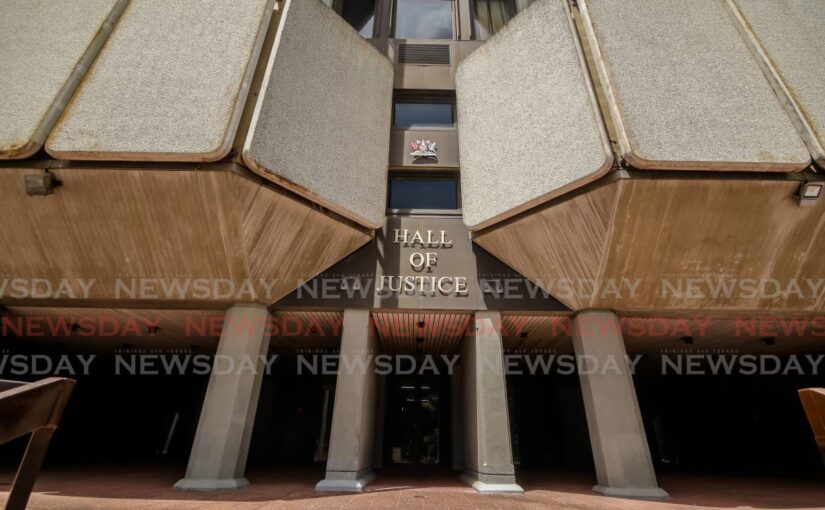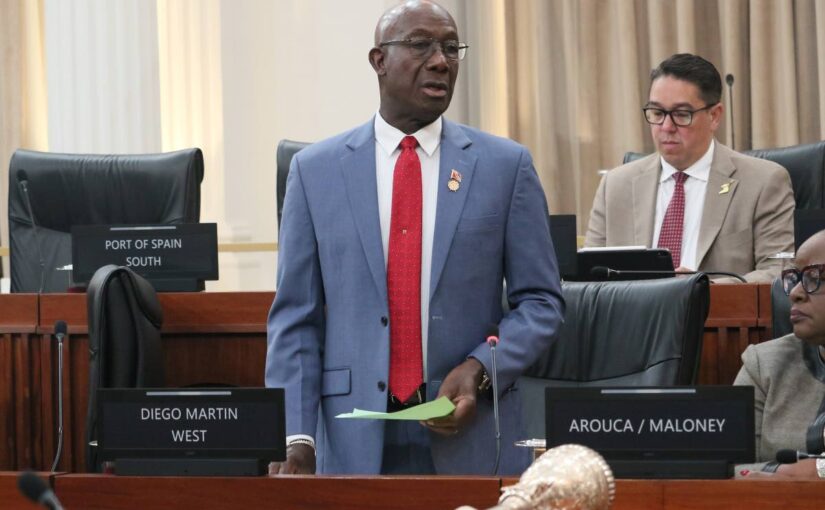

The Prime Minister responds to questions in Parliament on November 18 about a special police task force vetted by the US Drug Enforcement Administration (DEA) to fight organised crime. - Courtesy Office of the Parliament
THE Prime Minister has said a special police task force vetted by the US Drug Enforcement Administration (DEA) to fight organised crime will be under the control of Commissioner of Police (CoP) Erla Harewood-Christopher.
Dr Rowley also said an audit into the operations of the Strategic Services Agency is ongoing because matters are unfolding and it is difficult at this stage to say when a final report on this audit will be submitted.
He made these statements in response to questions from UNC MPs Rudranath Indarsingh and Davendranath Tancoo in the House of Representatives on November 18.
A memorandum of understanding (MoU) was signed by Denise Foster, the special agent in charge of the DEA’s Caribbean Division, National Security Minister Fitzgerald Hinds and US Ambassador Candace Bond on November 14 at the office of the Transnational Organised Crime Unit (TOCU) – an elite unit of the police service which has had a long history of collaboration with US agencies.
Hinds said the collaboration underscored the significant value TT placed on enhanced security and operational effectiveness in addressing the complex issue of transnational organised crime.
>
Rowley reinforced these points in his response to Indarsingh about the unit.
He said the unit will comprise “members of law-enforcement entities from TT with the lawful authority to investigate major transnational organised crime.”
Rowley added the DEA will support the unit during its investigations.
He said there was extensive stakeholder consultation over the last year about the creation of the unit.
Indarsingh asked about its reporting relationship.
Rowley said, “Reporting relationships remain the same. The vetted unit will be under the control of the CoP, and the reporting relationships remain the same.”
He declined to respond to Indarsingh’s questions about whether the salaries paid to officers in the unit will be different from those of other police officers.
Rowley said, “I will not venture to interfere with the compensation package of officers, whether they come from the Coast Guard, the Defence Force or the police.”
Indarsingh asked whether the TT Police Social Welfare Association was involved in the stakeholder consultation he mentioned. Rowley said, “I have indicated that appropriate stakeholder consultation has taken place.”
>
Earlier in the sitting, Rowley said the audit into the SSA is ongoing.
“At many stages along the line, the government has received interim reports on the different aspects of that operation.”
He said arising out of one of those reports is a new organisational chart for the SSA, which is being considered by the National Security Council (NSC), which he chairs.
He hoped a final report on the SSA audit will be ready in the near future.
Moonilal asked why no such report could be provided on this matter, which first arose in March.
Rowley said, “It should be obvious to anyone that it is an ongoing arrangement in an investigation where new information and new situations are developing. We cannot put a final report while the matter you are investigating is in fact continuing to unfold.
“We will not try to have a final report by a particular date if in fact we do not have the complete picture of the situation and we are in fact continuing to investigate the matter.”
Rowley did not give details of the new information and situations he referred to.
Moonilal asked if it was prudent to change the SSA’s organisational structure while the audit was ongoing. Rowley said Moonilal was giving himself information and authority he had no basis for.
>
“It is quite possible, and it has been done, to review an organisation and come up with an organisational chart which is an improvement on the existing one.” Where information existed on shortcomings in the SSA from interim reports on the audit, Rowley said, “You use that to guide you towards dealing with the new organisational chart.
“It is ongoing work and that is precisely what I have just said. The work is ongoing.” Government is not making policy without information on this matter, he said: “That is not so at all.”
Speaker Bridgid Annisette-George disallowed a second attempt by Moonilal to ask for a date when the final report on the SSA audit will be submitted.
On July 3, Rowley said the audit by interim SSA director Brig Gen Anthony Phillips-Spencer found the agency was being run under the influence of a religious cult comprising highly-trained military operators on a treasonous mission to overthrow the government.
Phillips-Spencer, previously ambassador to Washington, DC, was recalled and and appointed interim SSA director when questions arose over the agency’s operations in March.
SSA director Major Roger Best was sent on administrative leave. He and 27 other SSA operatives were summarily dismissed between March and May on the basis of a confidential Special Branch report reviewed by the NSC.
Best was arrested on May 16, and in a media release on May 18, Hinds revealed a Cabinet decision that advised the acting President to terminate his appointment as SSA director with immediate effect.
His attorneys filed a constitutional motion on November 7 which seeks declarations that his rights were breached. Six declarations are being sought and Best also wants compensation for loss of income and the attack on his rights.
Rowley also said Attorney General Reginald Armour is seeking legal advice on the government’s response to the commission of enquiry (CoE) into the July 27,1990 coup attempt.
>
During a sitting of the House in April, then acting leader of government business Terrence Deyalsingh said the CoE was established on September 6, 2010 and its report was subsequently was laid in Parliament by the then prime minister (now Opposition Leader) Kamla Persad-Bissessar.
He said Persad-Bissessar “thereafter did nothing to take any decision to compensate any person(s) who were held hostage, traumatised and injured during the attempted coup.
“From what we’ve been able to unearth previous Cabinets took decisions related to assistance for victims of the attempted coup, the first being on August 20, 1990, which was never fully implemented, and the second on January 10, 1991, which too was never fully implemented.”
He said the Government awaited the outcome of Armour’s legal advice on the report.
Related News
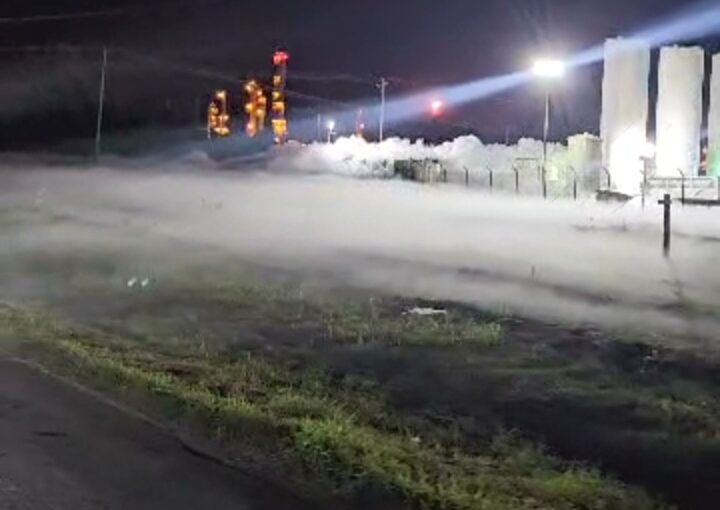
Massy Gas: No harm from release of excess nitrogen gas at Point Lisas plant
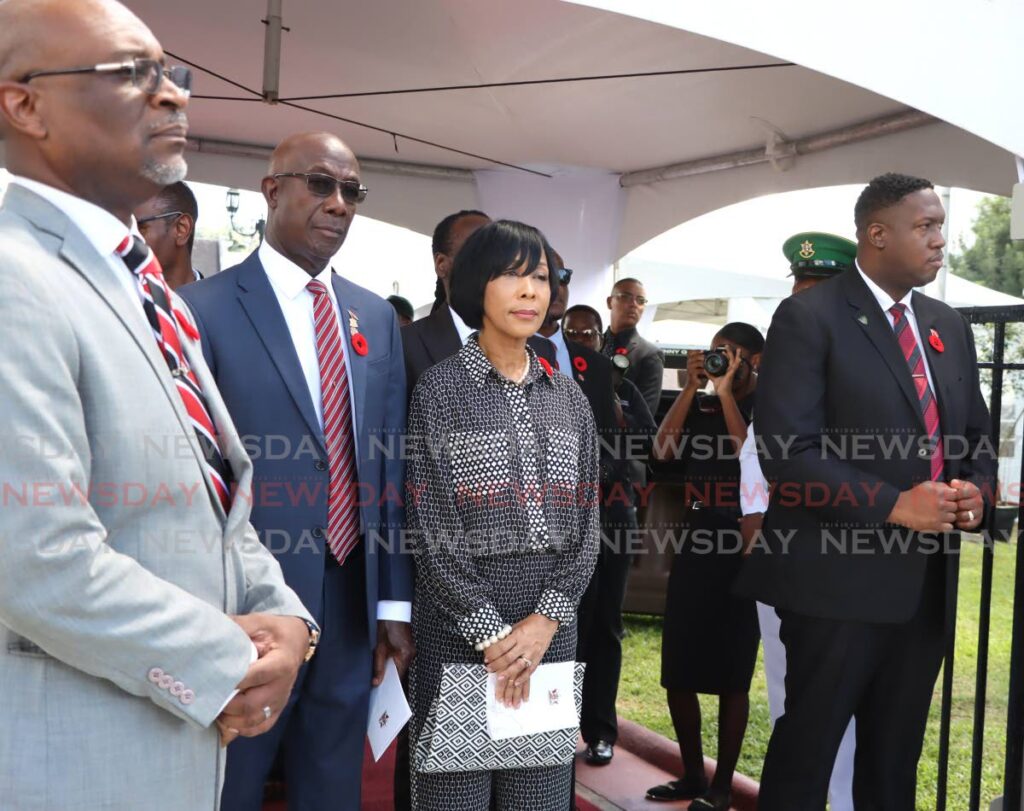
2024 Remembrance Day Parade: Through a lens
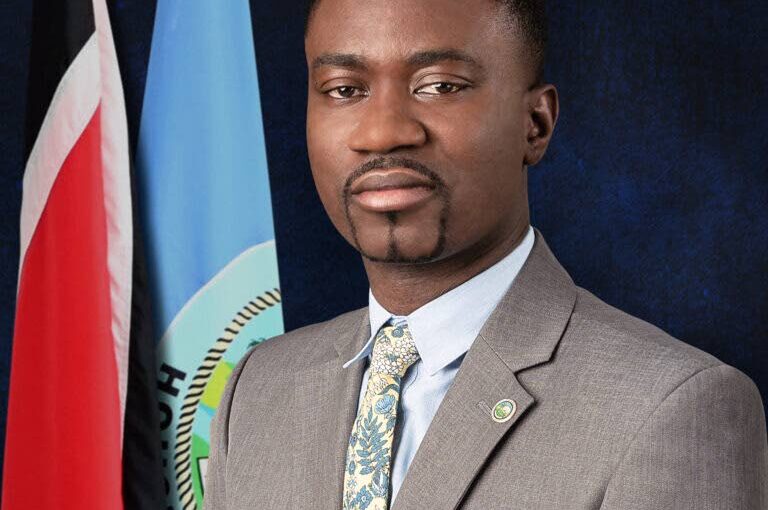
Eight THA officials fail to declare their assets
